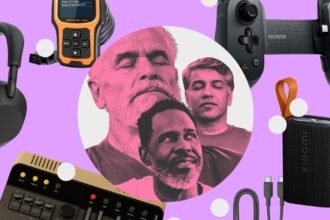Considerations such as spinning Instagram off into a separate entity, acquiring Snapchat, deleting users’ Facebook friends, and creating a feed composed solely of advertisements were ideas entertained by Meta’s CEO, Mark Zuckerberg, over the years as he expanded his social media giant. Recently, he discussed these ideas during his testimony in a federal courthouse in Washington, DC, where Meta is contesting an antitrust suit brought by the Federal Trade Commission (FTC) that could compel the company to divest Instagram and WhatsApp.
Zuckerberg has provided approximately nine hours of testimony thus far and is expected to continue on Wednesday, ahead of Sheryl Sandberg. The FTC has been urging him to confirm its perception of the social media market and to explore his motivations behind acquiring emerging rivals.
The central argument from the FTC is that Meta strategically acquired early-stage competitors like Instagram and WhatsApp in the 2010s to mitigate potential threats to its market dominance. The FTC aims to demonstrate that Meta holds monopolistic power within what it terms as the “personal social networking services” market, which revolves around connecting with friends and family and encompasses applications like Snapchat and MeWe.
Meta counters that the FTC has narrowly defined a market to target the company. On Tuesday, Zuckerberg resisted the FTC’s attempts to establish its market definition, stating that from his perspective, the market is “fluid.” He identified TikTok, YouTube, and iMessage as current leading competitors.
The FTC highlighted Meta’s marketing language, showcasing its emphasis on connecting friends and family, and sought to differentiate Facebook from platforms like LinkedIn. Zuckerberg rarely provided monosyllabic answers; instead, he elaborated on the similarities he perceives between Meta’s offerings and various other services. Although Facebook uses the message of connecting with friends as part of its marketing, Zuckerberg indicated that this tagline is likely just a well-received promotional angle. He also pointed out that while LinkedIn is traditionally career-focused, it shares features with Meta’s services.
Trial documents have provided insight into the strategic decisions Meta has made, alongside what alternate scenarios might have developed. For instance, if Snapchat CEO Evan Spiegel had accepted Zuckerberg’s $6 billion proposal in late 2013, Meta might have accelerated Snapchat’s growth significantly. Zuckerberg speculated on this possibility during his testimony.
Zuckerberg once suggested the notion of resetting users’ friends lists to offer them the excitement of a fresh start.
The FTC postulates that Meta increased its advertisement presence over time due to the lack of alternate services available to users. Zuckerberg once proposed exclusively ad-based feeds, as users find them as engaging as standard content.
Additionally, discussions Zuckerberg had with top executives about the company’s critical decisions were reviewed. Internal records exhibited Zuckerberg’s concerns about lagging behind Instagram’s swift expansion and his apprehensions that platforms such as WhatsApp could eventually impact the social media market. In court, he maintained that the company’s acquisitions enhanced these apps to their current stature.









